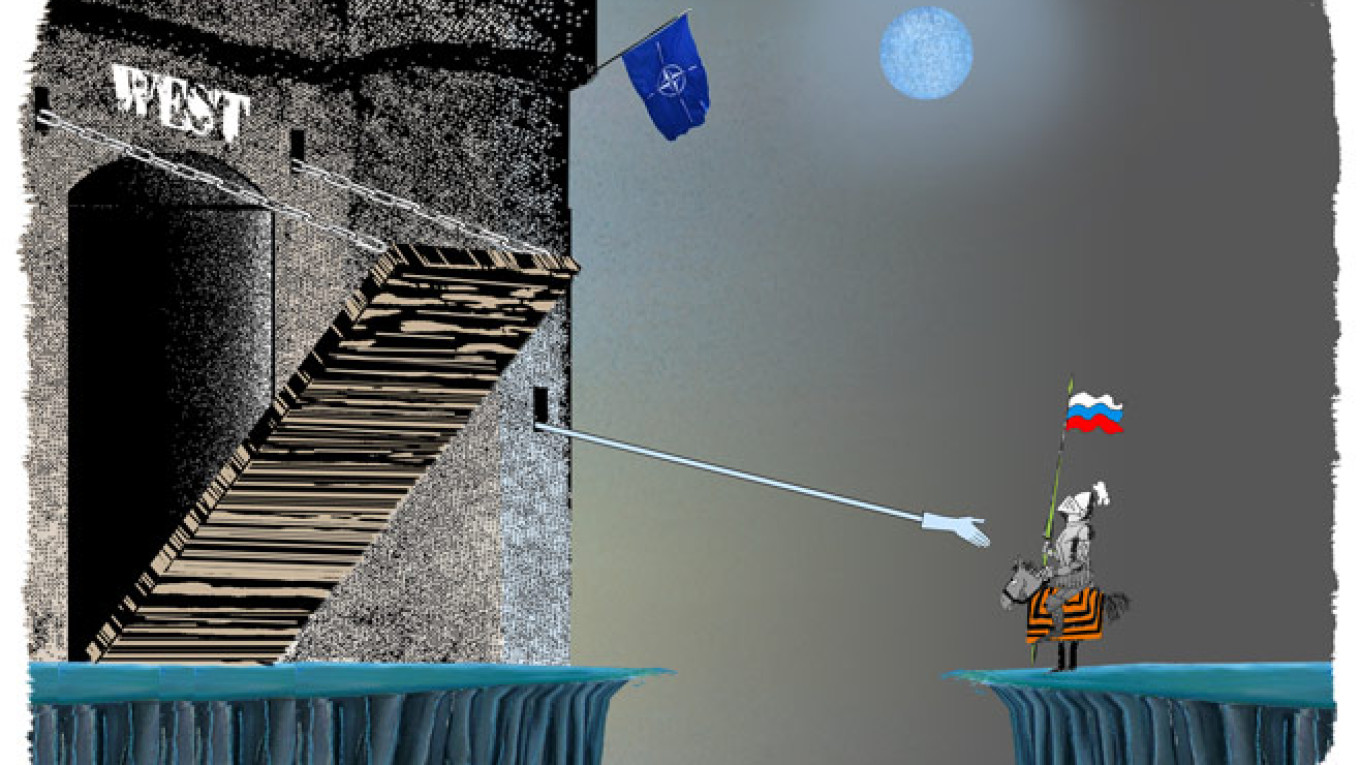Discussions are under way in several Western capitals on how to develop a broad strategy to counter the dangers to Europe posed by Moscow's decision to break out of the security system that it co-authored with the West at the end of the Cold War.
For governments that have tried for nearly 25 years to develop relations based on partnership and cooperation with Russia, the adjustment to a model of confrontation and competition is challenging both intellectually and institutionally, particularly since the expertise of the Cold War generation of analysts and strategists has been largely lost.
The first challenge is to accept that for all the effort expended, the attempt to build relations with Russia based on shared values and interests failed.
While Western countries made many mistakes in their handling of Russia, in particular, the backing of economic reforms that created oligarchic capitalism, the fundamental reason for this outcome was Russia's relapse into a traditional model of governance and its insistence on the need to undercut the independence of the other post-Soviet countries to ensure its security.
The Russian leadership is seeking a new set of rules that give Russia the right to limit its neighbors' sovereignty. This is part of a broader effort to reduce the dominance of Western institutions and realign global forces to Russia's advantage. The objective is to secure and reinforce the existing Russian development model by reducing external competitive pressures.
For all its internal logic, this strategic choice carries enormous risks. Confronting the West deprives Russia of an important balancing force in handling its relations with China and threatens to isolate Russia from the sources of modernization traditionally provided by Europe.
Russia is using a mix of powerful instruments to achieve its goals: for example, political, diplomatic, economic, military and information tools. However, Russia is playing a strong hand from a fragile base. It has clear economic weaknesses and over time, its internal political cohesion could prove brittle in the absence of improved governance and social provision.
The West needs to see the bigger picture and focus on encouraging Russia back on to a reformist course with adapted foreign and security policies that are stabilizing for Russia and Europe.
Rapid Western technological development coinciding with the stagnation of the economy forced the Soviet leadership in the 1980s to reshape the international environment to provide it with a breathing space to reform.
What is striking about Russia's behavior over the past 15 months is that Moscow has returned seemingly without concern to the policies of confrontation that the Soviet Union abandoned because they were unaffordable.
This has happened at a time when the Russian economy had already begun to stagnate after its impressive successes a decade ago. It clearly lacks the resilience to sustain high levels of military spending over the medium to long term.
The outline of an effective Western strategy is simple. It needs to play for time to apply its strengths against Russia's weaknesses. The foundations should consist of five elements.
First, making it clear to Moscow that Western countries remain wedded to the principle that countries in Europe, both large and small, have the sovereign right to conduct their own foreign policies and choose their allies as they wish.
Second, reinforcing the integrity of NATO. The alliance's military capabilities have been hollowed out over the past 25 years in the absence of a perceived threat from Russia.
NATO countries took a firm stance on Russia's actions at last year's Wales Summit and they need to continue along this path. Above all, they need to underline their determination to uphold the credibility of collective defense.
Third, signaling to Russia that Ukraine will not be left to fail. This is going to require much larger Western financial assistance as well as the type of technical assistance at which the EU excels.
Western countries will also need to reinforce their current support for Ukraine, particularly in the areas of defense cooperation, energy sector reform, security of gas supplies and broader institutional reform.
Fourth, keeping sanctions in place with the possibility of their expansion as long as Russia continues to undermine the sovereignty of its neighbors. For some European countries, the economic losses are going to be harder to bear than for others. Sanctions pain can also be seen as an investment in the EU's and NATO's defenses.
Sanctions take time to work and they may already have constrained Russian behavior in Ukraine.
Fifth, educating Western publics about the dangers to Europe from current Russian policies. The Pew Research Center's recent Global Attitudes survey showed that societies in Europe are well informed about Russia and have drawn certain conclusions about its behavior. However, they have not concluded that their countries need to reinvest in defense.
Western countries are now engaged in a competition with Russia over whose security vision for the continent should prevail.
They should have the confidence that if they apply the right strategy over the medium to longer term, the advantage will lie with them and Russia will be under increasing pressure to abandon its current policies. The critical question is whether they have the will to do so.
John Lough is an associate fellow with the Russia & Eurasia Program at Chatham House and a vice president with BGR Gabara, a London-based strategy-consulting firm.


